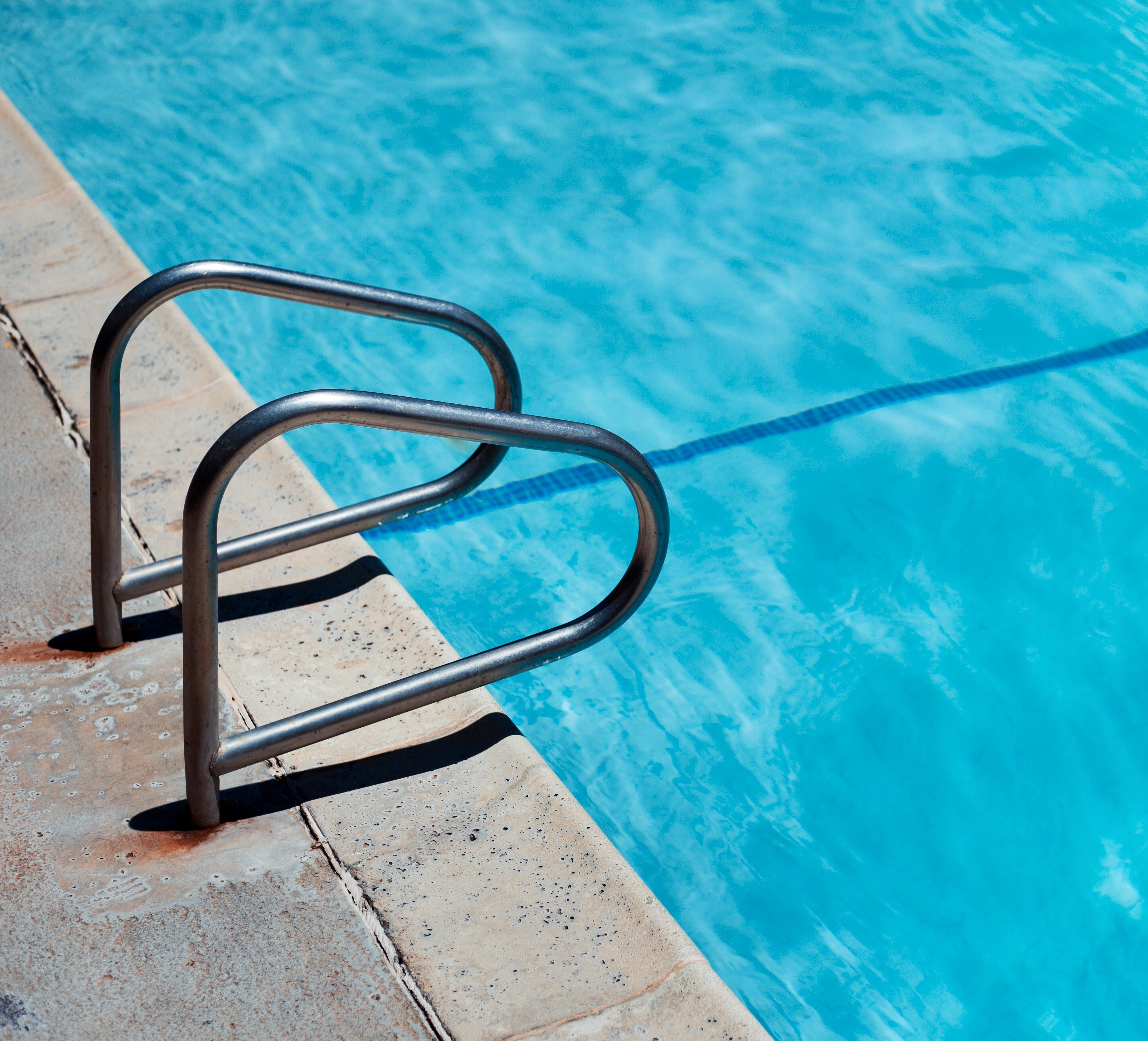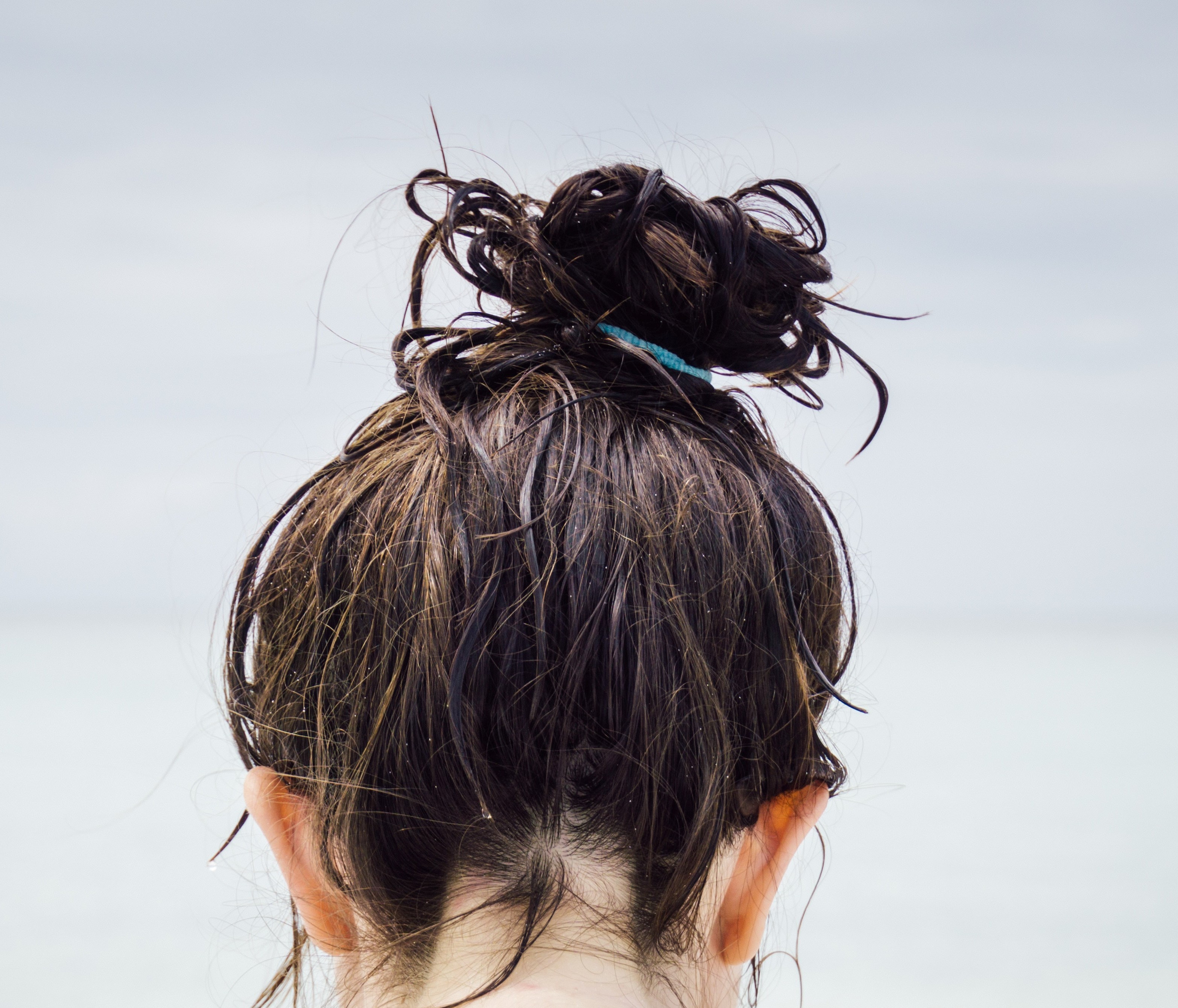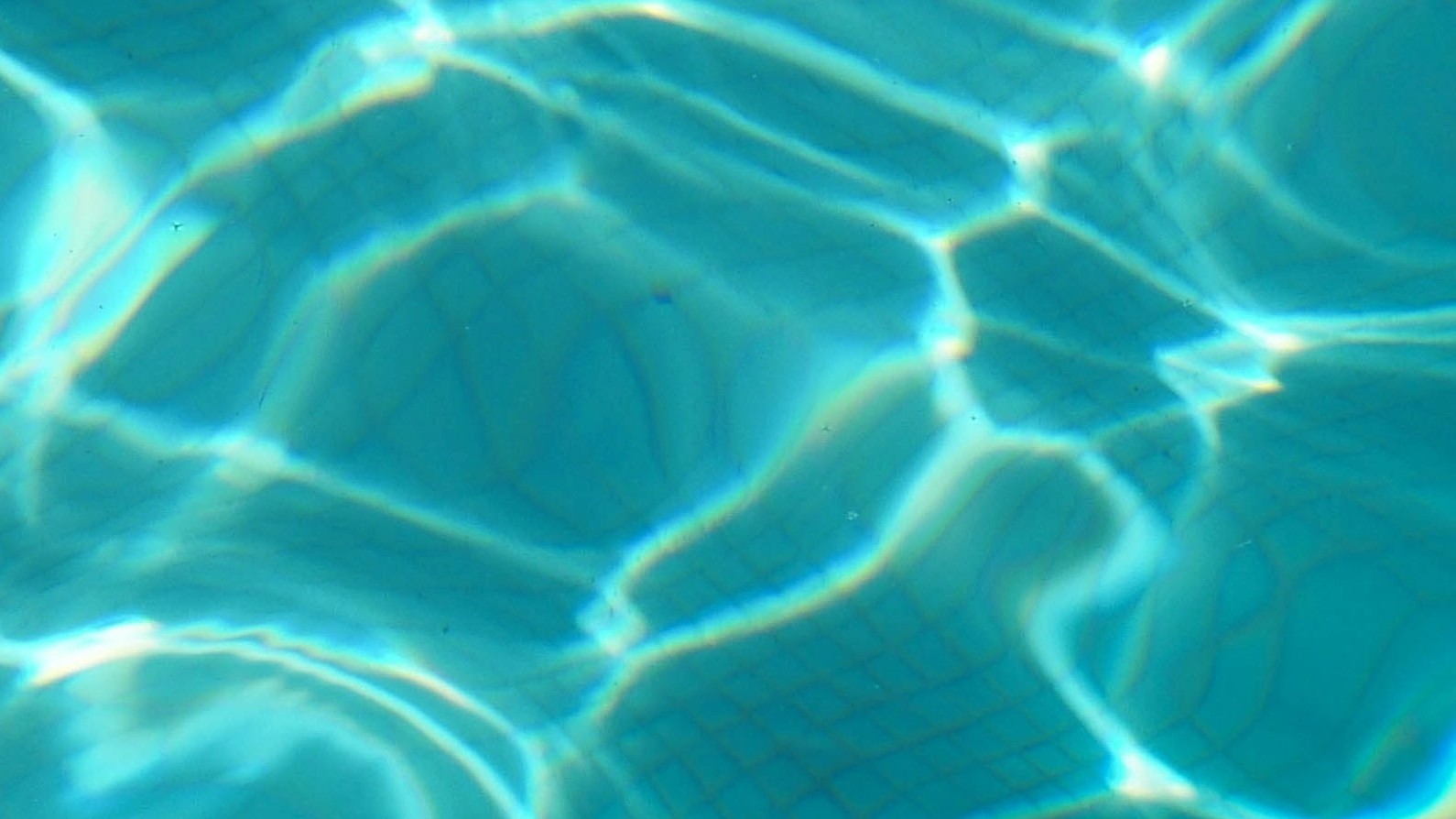It probably won't surprise you that chlorine is noooot great for your hair. Super not great, in multiple ways.
To start us off, let's look at how chlorine affects one of the most important building blocks of hair: keratin.
Chlorine and Keratin
Keratin makes up over 90% of the hair structure. It's an important type of protein that also makes up the structure of your nails.
Chlorine binds to keratin, which, according to Dr. Amber O'Brien from the Mango Clinic, leaves a sticky, hard buildup that should be washed out ASAP. Otherwise, you might have to deal with some serious consequences: "If it continuously binds with your keratin due to repeated pool swims, it will eventually weaken the keratin - thereby weakening your hair."
She's got a serious point: research also shows that chlorinated hair has a higher level of breakdown of keratin than does unchlorinated hair. And nobody wants that -- a lack of keratin can lead to brittle, dry, unmanageable hair that's hard to brush through and easy to break.
It also goes without saying that chlorine is no good for hair that recently underwent a keratin treatment -- it'll basically undo the whole thing. Bye bye, shiny salon smoothness.
 Chorine Green
Chorine Green
But that's not the only way that chlorine can hurt your hair. Chlorine is also extremely reactive. It is a strong oxidizing agent.
This is why you may notice that your hair has a greenish tinge after swimming in chlorinated water. It's because chlorine oxidizes the copper in the water. If copper happens to be in the water, chlorine can give blonde hair a yellow-greenish tinge also - especially if it is dyed blonde.
Dr. Leann Poston shared with us the finer details of how this happens: "When you jump in the pool, copper ions settle along the cracks in the hair cuticle. The chlorine in the water oxidizes the copper causing the green color. This same process is why the Statue of Liberty is green."
If your hair is already damaged and/or blonde, the effects might be more noticeable. Dr. Poston says, "If your hair is bleached or dry, you will notice the greenish color more due to increased damage to the hair cuticle."
And because the nature of chlorine is to bleach colors, it can also, in some circumstances, further lighten the hair. So if you're totally in love with the exact lightness and tone of your tresses, beware of chlorinated pools.
So that's good to know for swimmers. But what about tap water?
Fortunately, even if you know that your tap water contains copper, Dr. Poston says you shouldn't worry too much. "Tap water can also contain copper, but you need the interaction between copper and chlorine to bind together to produce the film on hair which discolor it." So as long as your tap water isn't also super chlorinated, rest easy.
 Chlorine and dry hair
Chlorine and dry hair
Aaand the chlorine damage doesn't stop there. Dr. O'Brien says that chlorine depletes the hair's natural oils causing brittle and dry hair. "Chlorine is drying as it breaks down the natural oils produced by the sebaceous glands on your scalp leaving your hair feeling dry and brittle."
Remember that bit from before about chlorine is a powerful oxidizing agent? Dr. Posten says that it impacts this part too: "Chlorine oxidizes the lipids produced by the sebaceous glands. It binds to hair sebum and strips it from the hair and scalp. Eventually, if you swim a lot in chlorinated pools, your hair will become dry if the sebum cannot rebuild itself between swimming sessions."
So basically, normally your hair endlessly creates new sebum (the oily stuff that eventually appears on your scalp, should you not wash for a day for two). This sebum is useful for hydrating your hair -- it's your scalp's natural conditioner. But chlorine may have the ability to strip your hair so, so much of its natural sebum, that your scalp isn't able to keep up. Your hair is then left dry, dull, and lifeless -- big yikes.
Bottom line: if you can, it'll probably be good for your hair to swim in chlorine a little less often. Our experts both agreed that chlorine is not great for hair health -- be sure to invest in some quality products (or a salt water pool perhaps) to keep your tresses safe.
Wanna learn even more about haircare? Here's what you should check out next:
pH Balanced Shampoo: Everything You Need To Know
The heck does "pH balanced" even mean???
How To Grow High Porosity Hair
Buh-bye, breakage.
How Long Should I Wait To Dye My Hair Again?
**glances at clock**
What Is A Hair Cuticle?
Let's learn more about your hair's first line of defense against damage. ⚔️
Hair Texture Changes 101
The good, the bad, and the ugly ... when it comes to hair texture changes, we've got you covered.


 Chorine Green
Chorine Green  Chlorine and dry hair
Chlorine and dry hair 